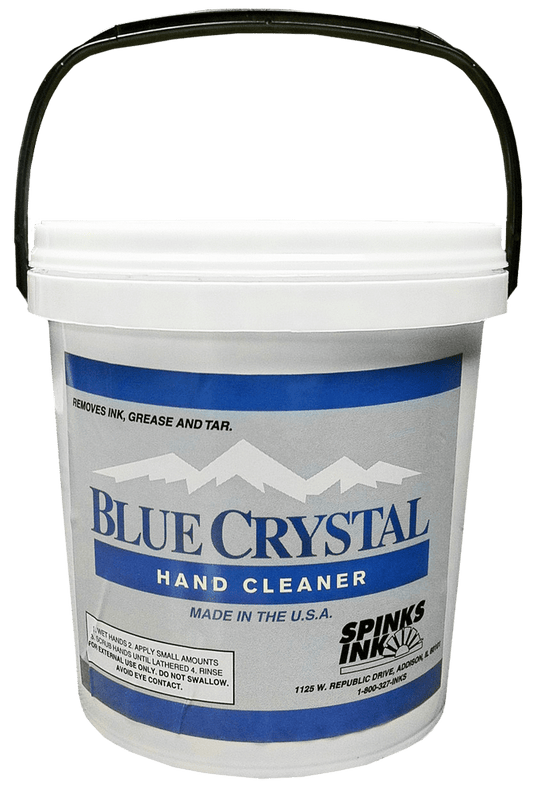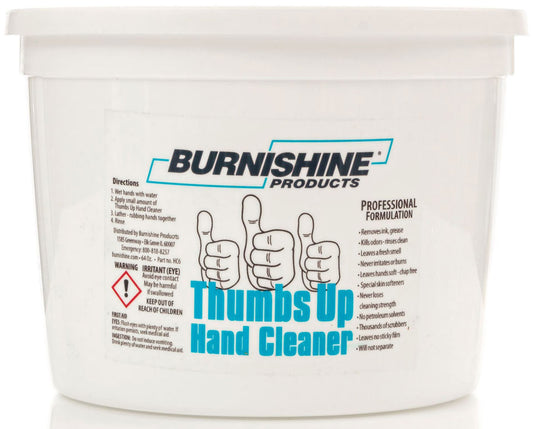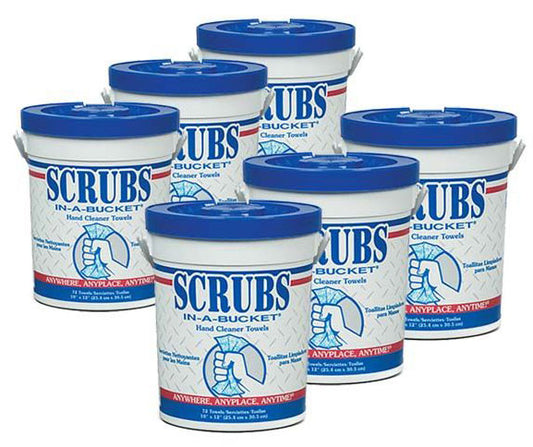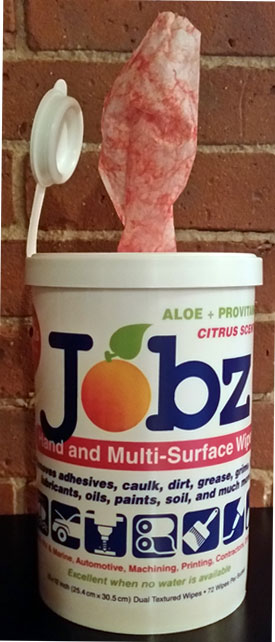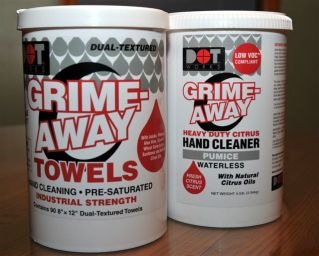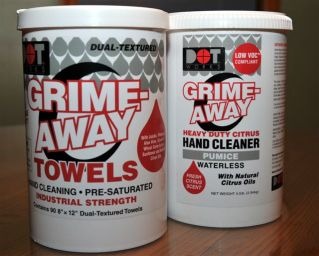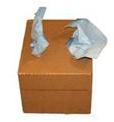Press operators, screen printers, and finishing techs all face the same problem: ink doesn’t wash off easily.
Even after repeated scrubbing with regular soap, traces of pigment, varnish, or solvent remain, especially under nails and around cuticles. The result? Stained hands, irritated skin, and lost time between jobs.
Heavy-duty hand cleaners are formulated for industrial soils unique to print environments. They break down ink binders, oil-based residues, and adhesives at the chemical level while the scrub media gently lifts them from your skin’s texture. Unlike harsh solvents, they rinse clean without stripping moisture, so your hands recover faster and stay comfortable through long print runs.
The Difference You Can Feel
The difference between regular soap and a professional-grade hand cleaner is more than strength; it’s smart chemistry.
A good heavy-duty cleaner should:
- Cut through ink, resin, and solvent residue fast
- Rinse completely without leaving a greasy film
- Include skin conditioners to prevent dryness or cracking
- Work without harsh petroleum solvents
Clean hands mean better grip, safer handling, and a more professional look, because even after hours on press, you shouldn’t have to wear your work on your skin.
Types Of Heavy-Duty Hand Cleaners
Not all heavy-duty hand cleaners are created for the same mess. Understanding the families helps you pick the right bottle for your bench.
Solvent-Based Cleaners
These use petroleum distillates or citrus terpenes (like d-limonene) to dissolve heavy oils and tar. They cut fast and feel slick. Downsides: some solvents can be harsh on skin, add VOCs, and may irritate cuts. Citrus-based blends such as SCRUBS In-A-Bucket deliver the cleaning strength of d-limonene in pre-moistened towels, ideal for wiping down tools or hands on-site without needing a sink.
Solvent-Free (Surfactant-Rich) Cleaners
These rely on advanced surfactant blends and emulsifiers, with no traditional solvents, to lift grease. Modern formulas can match solvent performance with far less irritation. They often include skin conditioners and are a go-to for frequent washing. Thumbs Up Hand Cleaner is a good example — solvent-free, polymer-scrubbed, and fortified with moisturizers to protect skin through daily use.
Pumice or Scrub-Media Cleaners
Pumice, walnut shell, corn cob, or synthetic beads provide mechanical lift for caked-on grime and under-nail crud. Always look for biodegradable media; polyethylene microbeads have fallen out of favor for environmental reasons. The Blue Crystal Hand Cleaner uses eco-friendly scrub media and a neutral pH formula to remove stubborn inks, resins, and adhesives without solvent fumes.
Waterless Hand Cleaners
Creams or gels designed to wipe off without a sink, perfect for field work, service trucks, and remote sites. The best still rinse clean once you reach water, so keep shop towels handy. SCRUBS In-A-Bucket fits here too, thanks to its waterless convenience and portability.
Antibacterial / Antimicrobial Variants
Some formulas include antimicrobial agents to reduce transient bacteria alongside soil removal. For most industrial grime, cleaning power matters more than antibacterial claims. If you need antimicrobial action (food processing, healthcare-adjacent work), verify compatibility with your safety protocols.
Specialty Cleaners
Tailored to unique soils: two-part epoxy, urethane adhesives, printing inks, or concrete haze. If your mess is niche, a specialty formula can save both time and skin. Ink- and resin-focused options like Blue Crystal Hand Cleaner are particularly effective for print shops and graphics work.
How To Choose The Right Cleaner For Your Job
Picking the best heavy duty hand cleaner isn't about the loudest label, it's about matching chemistry to your soils and your skin.
Map your grime
- Automotive and diesel grease, gear oil, anti-seize: start with solvent-free or citrus-forward formulas plus pumice.
- Epoxy, urethane adhesives, roofing tar: higher solvency helps, or consider specialty adhesive/tar removers designed for skin.
- Paint and inks: look for ester-rich or specialty ink cleaners with fine scrub media.
- Concrete, mortar, rust dust: abrasion from pumice or walnut shell lifts mineral fines: moisturizers are key to prevent drying.
Consider frequency of washing
- Multiple washes per shift? Go solvent-free with rich conditioners to protect skin.
- Occasional deep cleans? A stronger solvent-based option might be fine if you moisturize afterward.
Prioritize skin health
- Look for "solvent-free," "pH-balanced," and "with skin conditioners" if you've got cracked knuckles or dermatitis concerns.
- Fragrance-free or dye-free if you're sensitive or work in odor-controlled environments.
Check environment and compliance
- Indoor shops: lower-VOC and solvent-free reduce fumes and keep IAQ better.
- Food-adjacent or regulated spaces: verify product meets facility standards: keep SDS on file.
Packaging and dispensing
- Wall-mounted dispensers reduce waste and cross-contamination in high-traffic wash stations.
- Waterless tubes for trucks and field kits.
- Pump bottles for benches, look for sturdy pumps that won't gum up with pumice.
Total cost of clean, not price per ounce
A cheaper jug you overuse isn't cheaper. Effective cleaners reduce scrub time, water use, and skin damage. If a product gets you clean in one pass, it's a win.
Heavy Duty Hand Cleaner: Frequently Asked Questions

